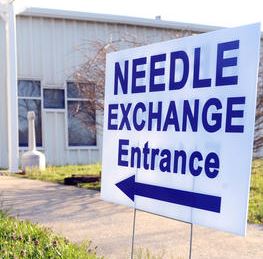Indiana HIV Epidemic – Rights for Those Infected
Over 100 people in southeastern Indiana recently tested positive for HIV. Governor Mike Pence declared a public health emergency within the county on March 26 due to the massive amount of cases for a town with a minimal population.
 The HIV outbreak is caused by intravenous drug users sharing of needles. Most of the infected people injected a liquefied version of Opana, a prescription painkiller.
The HIV outbreak is caused by intravenous drug users sharing of needles. Most of the infected people injected a liquefied version of Opana, a prescription painkiller.
State health officials introduced a new needle-exchange program that allows drug users to turn in their used needles in exchange for clean ones. Officials announced participants will not be arrested for participating in the program, nor will they receive any repercussions for engaging in drug use. The program was initiated to combat the HIV epidemic that is taking over Scott County, Indiana.
Rights for Those Infected
What rights do you have if infected by a needle? Infection can occur at a hospital, tattoo parlor, or anywhere needles are used. Many diseases can be contracted through needles: HIV, Tetanus, Cellutitus, etc. What can you legally do if infected through a needle?
First, you need to prove the accused caused the transmission. Evidence including sexual history, testing history, and scientific evidence are needed in order to prosecute. Intentional sexually transmitted HIV is much harder to prove than intravenous transmitted HIV. The needle holds DNA and strains of HIV within the liquidated drug. The needle is the most important piece of evidence to use in this type of case.
What If You Were Infected at a Tattoo Parlor?
What if you contract a disease through tattooing? The legal principle used in such cases is negligence. Even though waivers are required in order to receive a tattoo, shops can be held liable if negligence is proven.
To avoid claims based on negligence, tattoo parlors should do the following:
- Artist asks a series of questions about your medical history and any allergies you may have before beginning the tattoo
- Artists asks if you are over 18 (it is illegal to tattoo anyone under that age)
- The tattoo parlor displays health and safety certificates
- The artist to uses a new and sterile needle on each client
- The artist to washes his or her hands thoroughly and wears disposable gloves, and
- The artist to gives you adequate after-care advice.
Implied assumption of risk is commonly used as a legal defense. There is obvious risk in receiving a tattoo or injecting drugs. Therefore, tattoo parlors or the person providing the needle can use the implied assumption of risk defense to avoid prosecution.

Comments